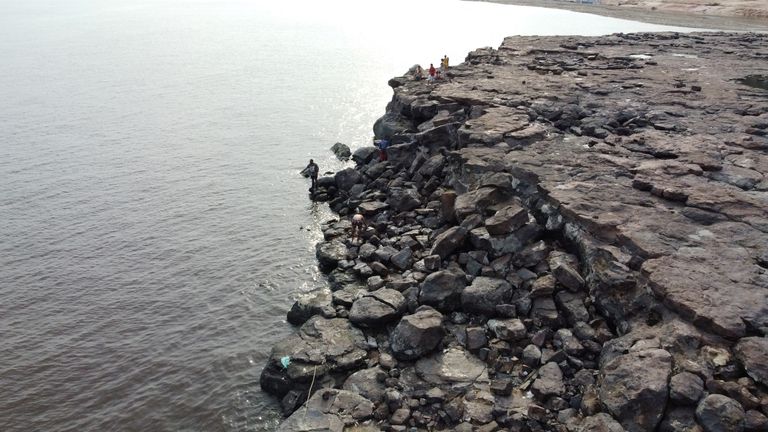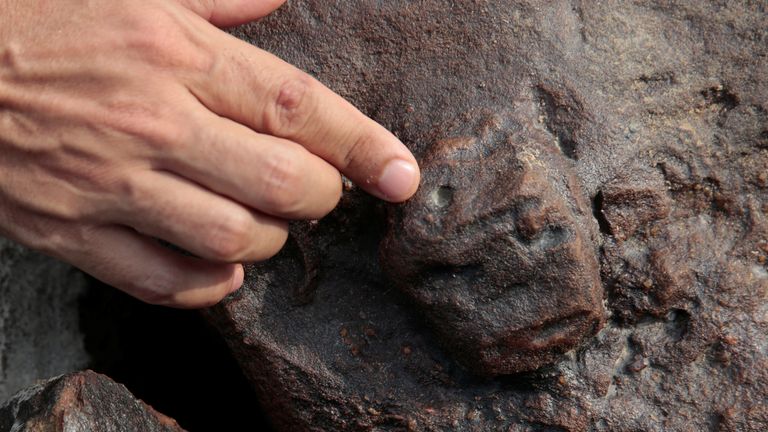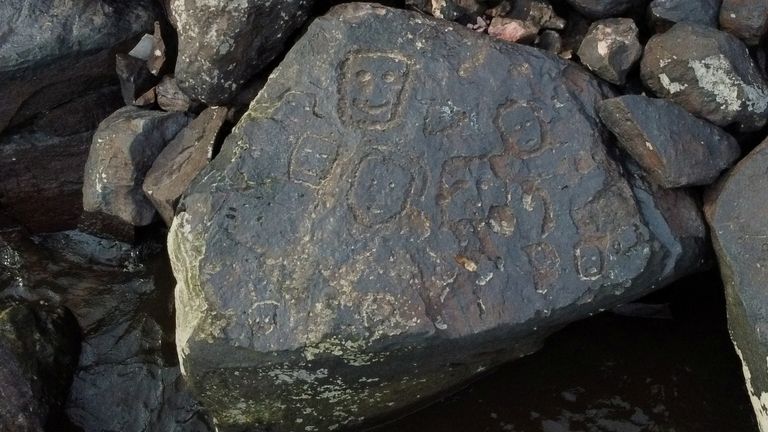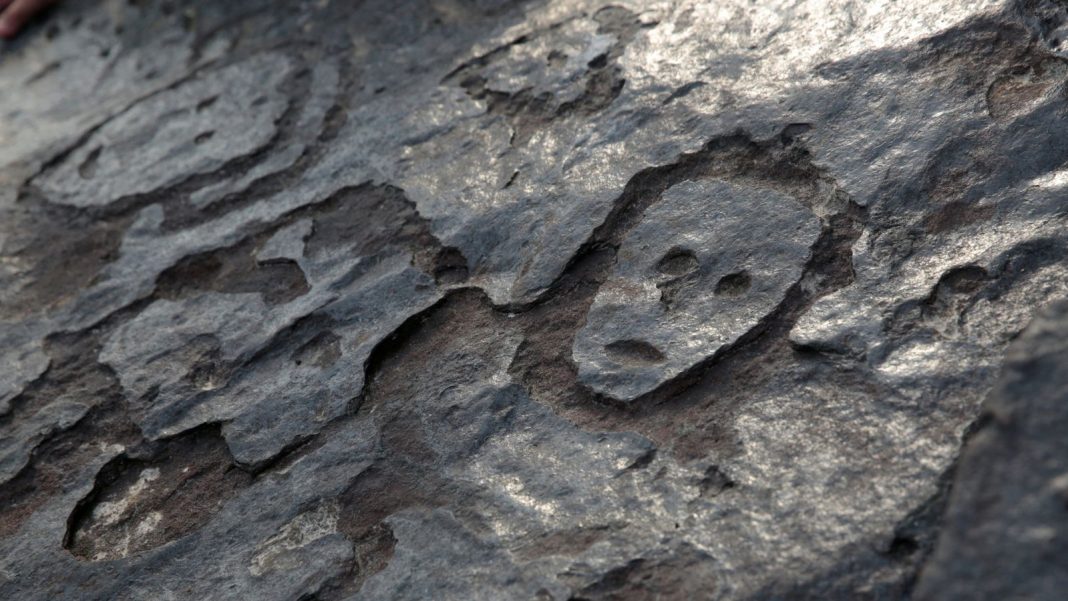Ancient human faces carved into stone around 2,000 years ago have been revealed by a historic drought along the Amazon River.
While a few of these rock carvings had been spotted previously, a new variety of them has piqued the interest of researchers, providing valuable insights into their origins.
Archeologist Jaime de Santana Oliveira highlighted the discovery on Monday and pointed out the presence of various distinct carvings.
A view of ancient stone carvings on a rocky point of the Amazon river that were exposed after water levels dropped
One particular area exhibits polished grooves in the rock, believed to have been used by Indigenous inhabitants for sharpening their arrows and spears well before the arrival of Europeans.
“The engravings are prehistoric, or precolonial. We cannot date them exactly, but based on evidence of human occupation of the area, we believe they are about 1,000 to 2,000 years old,” Mr Oliveira said in an interview.

People are seen in the area where the ancient stone carvings were spotted
The rocky spot, known as Ponto das Lajes, sits on the north side of the Amazon River, close to where the Rio Negro and Solimoes rivers meet.
Mr Oliveira said people first noticed the carvings there in 2010, but that this year’s drought had been worse.

People first noticed the carvings back in 2010

A view of ancient stone carvings on a rocky point of the Amazon river that were exposed after water levels dropped to record lows during a drought in Manaus, Amazonas state, Brazil October 23, 2023. REUTERS/Suamy Beydoun
Read more on Sky News:
Israeli diplomat explains Gaza ground offensive delay is ‘no bad thing’
Body recovered and two rescued after British cargo ship sinks
The Rio Negro has gone down by 15 metres (49.2ft) since July, revealing large stretches of rocks and sand where there used to be no beaches.
“This time we found not just more carvings but the sculpture of a human face cut into the rock,” added Mr Oliveira, who works for the National Historic and Artistic Heritage Institute (IPHAN) that oversees the preservation of historic sites.







